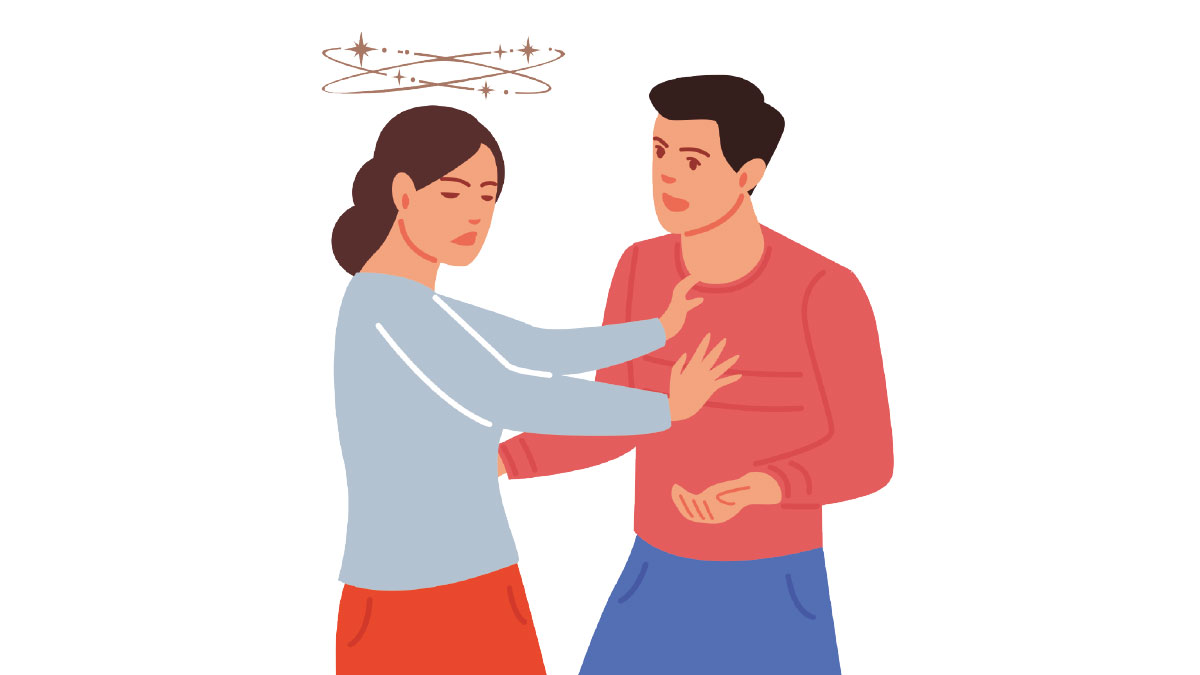Nacimos para ser libres y cuando amas a alguien le vas a ayudar a crecer, nunca le vas a cortar las alas
En una relación de pareja donde el ingrediente principal es controlar al otro, la frustración y el enojo son emociones con las que vamos a vivir diariamente.
Tanto la persona que controla como el controlado tienen baja estima, por lo cual es importante empezar a trabajar en el mundo interno de cada uno.
El control anula el ser de la persona que lo recibe, y lo más importante que tenemos es nuestro ser. No permitas que el control te destruya.
Características de una persona que es controlada:
1. Se aísla, se achica su mundo social
2. Síndrome de Estocolmo doméstico: Justifica el control de la pareja
3. Se empieza a olvidar de sí mismo
4. Baja o nula autoestima
Qué puedes hacer para salir de esta situación:
1. Identificar el control
2. Pedir ayuda
3. Hablarlo con alguien de confianza
4. Empezar a ponerte en primer lugar
Nacimos para ser libres y cuando amas a alguien le vas a ayudar a crecer, nunca le vas a cortar las alas. El sentirte útil es un elemento importante y lo adquieres cuando eliges desde la libertad y no desde el miedo.
Cuando estás en una relación de pareja obsesiva y controladora empiezas a cortarte en pedazos queriendo completar la vida del otro, y eso ¡nunca sucede!
Cuando te das cuenta te sientes tan vacía que no tienes fuerzas para completarte a ti misma.
Recupera tu vida y pide ayuda, puedes ser feliz
Si necesitas ayuda con este u otro tema, busca en:
• WhatsApp: 656-562-7960
• Facebook: Una vida mejor con Arlyn López
• Instagram: @arlynlopezoficial
My partner is obsessive and controlling
We were born to be free, and when you love someone, you’re going to help them grow; you’re never going to clip their wings
In a relationship where the main ingredient is to control the other, frustration and anger are emotions that we will live with daily.
Both the controlling person and the controlling person have low esteem, so it is essential to start working on the inner world of each one.
Control overrides the being of the person who receives it, and the most important thing we have is our being. Do not allow power to destroy you.
Characteristics of a person who is controlled:
1. He isolates himself, his social world shrinks.
2. Domestic Stockholm Syndrome: Justifies the control of the partner. 3.
3. They begin to forget about themselves
4. Low or no self-esteem
What you can do to get out of this situation:
1. Identify the control 2.
2. Ask for help
3. Talk it over with someone you trust
4. Start putting yourself first
We are born to be free, and when you love someone, you will help them grow; you will never clip their wings. Feeling useful is an essential element, and you acquire it when you choose from freedom and not from fear.
When you are in an obsessive and controlling relationship, you start to cut yourself into pieces, wanting to complete each other’s life, and that never happens!
When you realize this, you feel so empty that you don’t have the strength to complete yourself.
Take back your life and ask for help; you can be happy.
If you need help with this or any other issue, search on:
• WhatsApp: 656-562-7960
• Facebook: A better life with Arlyn Lopez
• Instagram: @arlynlopezoficial

